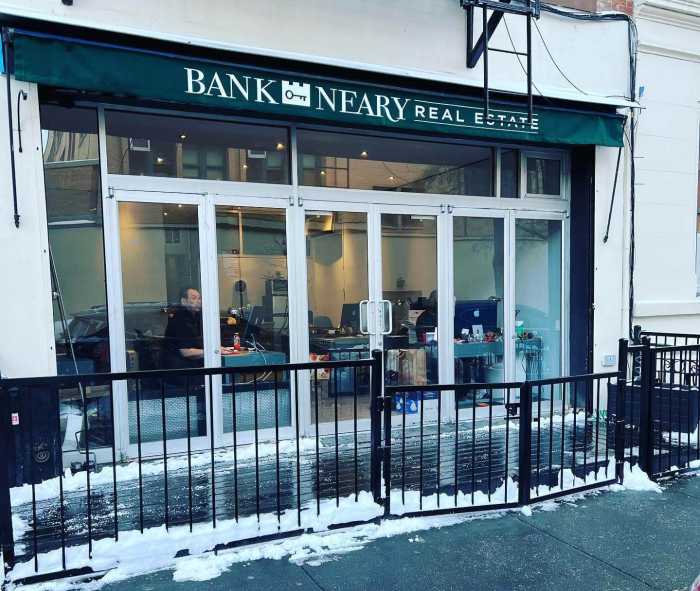The battle is on for New York renters on the hunt for their next great home.
Sweet pandemic deals that allowed New Yorkers to ditch roommates or upgrade their apartments and neighborhoods in 2020 are now feeling the burn. Those sweet pandemic leases are expiring. New Yorkers are on the move battling skyrocketing rents and fewer available apartments.
“There’s not a lot of inventory. They’re finding that in Manhattan the rents can be going up by 30 percent, sometimes 40 percent from what they got on their good COVID discount,” said Doug Williford, the gay chief strategy officer at Brown Harris Stevens. “So, that’s gotten really tight.”
The problem, is this comes at a time when the city’s available rental housing is below 2 percent, according to appraisal firm Miller Samuel’s Elliman Report for Manhattan, Brooklyn, and Queens rental markets.
New York’s leaders didn’t add as much housing as other Northeast cities, approving just 2.4 new units per 1,000 New Yorkers in 2020, according the New York Post. The federal data was made available online by Sidharth Kapur, an engineer, who made the data accessible to a broad audience.
“New York City is failing to produce enough rental housing, particularly at below-market rents, to keep up with population growth — and it’s making the housing crisis even worse,” James Whalen, president of the Real Estate Board of New York, told the Post.
The result: a record white hot rental market, unlike anything many of New York’s housing experts have ever seen before, even surpassing many of their winter predictions and warnings.
Rents across New York are bouncing back beyond pre-pandemic figures in some neighborhoods. Many renters are heading into the outer fringes of Brooklyn and Queens in search of low rent and more space, according to RentHop’s March 2022 report. Some renters are searching for roommate situations, while others are biting the bullet and choosing to stay put.
Those who are braving the market are witnessing a historic moment in New York’s rental market. Bidding wars are commonplace in homebuying, but about 20 percent of rental deals in Manhattan come from bidding wars, according to appraisal firm Miller Samuel’s Elliman Report for Manhattan, Brooklyn, and Queens rental markets.
Desperate New York renters are bidding, lining up to see apartments, adding their names to waitlists, signing leases sight unseen, and willingly paying the broker’s fees. A few renters are converting to homebuyers.
Last month, Gay City News helped New York homebuyers navigate the city’s hot market.
This month, the newspaper has some tips for renters to beat the sizzling hot rental market:
Do Your Homework:
- Whether you are staying or going, know what cards you hold and what your options are. Know your rights as a renter. New York City strengthened renter protections in 2019.
- Research the type of building you are living in. Approximately, half of New York’s 2.2 million rental units are rent-stabilized with an additional 27,000 that are rent controlled, according to New York’s Rent Guidelines Board. Are you living in a rent-stabilized apartment or is it a market rate apartment?
- Are you living in a private family-owned and -operated building or a building managed by an anonymous property management company? Research your landlord. Ask your neighbors about your landlord. See if anyone has rated your landlord on openigloo or other renter apps.
- Research what the going rents are in your neighborhood and surrounding and targeted neighborhoods.
- Use technology to your advantage. Use rental apps such as HotPads, openigloo, RentHop, StreetEasy, and Zumper to search for apartments. The apps can also help you research your landlord and neighborhood, and roommate apps, such as SpareRoom, can help you find a room and research potential roommates.
- Be a tourist in your potential new neighborhood. Check out your target neighborhoods by taking a tour, walking around, and hanging out for an afternoon.
- Stay flexible and open to opportunities.
Be Prepared:
Williford believes renters need to provide more information than homebuyers when applying for an apartment.
“One of my favorite clients ever actually came to me with a binder that was tagged with all the information they needed,” Williford said. “I almost cried. I was like, ‘you have a place in my heart.’”
They need their financials in order and clearly stated (credit report, three months of bank statements and paystubs, tax return, proof of future income).
Smaller landlords could be won over by a rental resume or biography, reference letters (previous landlords, your current landlord, neighbors, and separate reference letters for your pets).
Weigh Your Costs:
Will it cost you more to move than to stay? Tally up those moving costs and compare them against your rent increase. Do they balance out or tip the scale?
Negotiate:
Did you wait to receive your rent increase letter or were you proactive and reached out to your landlord? According to the New York Times, landlords are reaching out to tenants 90 to 120 days before their leases are due to expire to find out what their plans are.
Even if you received the letter notifying you that your rent is going to be increased, that doesn’t mean you can’t negotiate. Begin the conversation. List what you bring to the table and try to get whatever you feel you need that will offset the rent increase and make it a win-win to sign that new long-term lease.



































